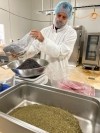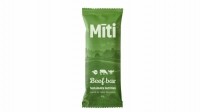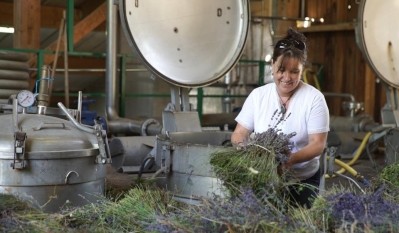Beefing up on sustainability: NZ firm ‘upcycles’ male calves into protein-rich beef bar
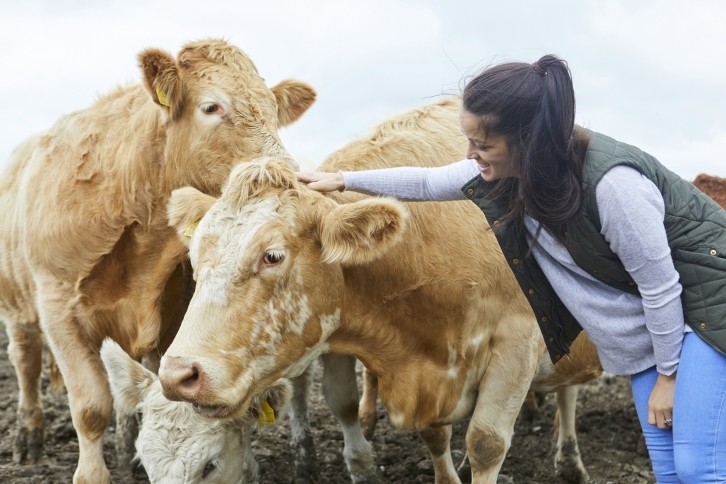
The beef bar, marketed under the name Miti, is fortified with nutrients made from other local New Zealand (NZ) ingredients, such as kiwifruit, medicinal plant kawakawa, and seaweed karengo.
It is expected to launch in six months or earlier in supermarkets, convenience stores, and health stores.
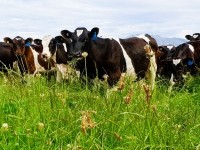
Male calves are often regarded as a wasted by-product of the dairy industry. They are either killed days or even hours after birth to save on farm resources, or made into lower value products such as ground beef and pet food.
Alps 2 Ocean Foods’ founder Daniel Carson had spotted an opportunity to address concerns around sustainability in one of the world’s largest dairy exporting countries and adding the value to the meat of dairy calves.
“Why it’s a much more sustainable form of beef from a greenhouse gas emissions’ perspective is that we slaughter them [dairy male calves] at the peak of their feed conversion efficiency at 12 months. There’s very minimal amount of greenhouse gas emissions for this beef. In New Zealand, two million calves are killed every year just at only four days of age.”
“The beef industry is sort of waiting for technology to catch up to stop cows from emitting so much methane, and using these younger animals [at 12 months] can be efficient in reducing greenhouse gas emissions and also provide for really good products,” he added.
Product
Its ingredients include 12-month grass-fed dairy beef fortified with cow’s liver, as well as 98% local NZ ingredients.
These local ingredients include honeydew honey, seaweed Karengo, paprika and Kanuka smoke oil that are associated with antioxidant and antibacterial properties.
Other ingredients include kiwifruit powder and native herbs Horopito, and Kawakawa associated with improving digestive health, garlic powder that is associated with lowering blood pressure, reducing cholesterol and immune support, as well as Marlborough flaky sea salt.
The firm added that the challenge with developing the product was preserving in a natural way. However, it has managed to find a way using honeydew honey. The product has a shelf life of nine to 12 months at room temperature.
“Traditional jerky and red meat products have got nitrate in them to preserve them with artificial ingredients. We’ve gone down the whole nutrient dense and natural health path. It’s all functional ingredients.”
The product will be made available in 14g bars costing about NZ$5 (US$3.10).
Product appeal in Asia
Notably, Carson highlighted that NZ consumers are not used to liver as a health food, but seemed receptive after explained about its nutritional benefits and that liver makes up a small percentage of the beef bar.
However, he pointed out its export potential in Asia, especially in Singapore, China, Japan, as well as halal markets like Malaysia: “The Asian consumer understands the health benefits of the liver, as well as seaweed and native plants. That's why we thought that it would probably be quite attractive to these markets. Also coming from New Zealand, we have a good reputation for food quality and natural products.”
Protein targeted at women and children?
Its beef bar is a convergence of a protein bar and jerky and therefore, “doesn’t fit a traditional category.” A consumer taste test done with 5,000 participants showed that the product was more well-received among children.
As there is already a burgeoning protein market targeted at men and sports consumers, the product aims to capture the “underserved women’s market” by appealing to their health- and environmental consciousness.
Additionally, women tend to be the ones making purchases for the household, and it would be a means for the product to penetrate the “school lunchbox market,” by incorporating natural high protein options in children’s meals.
Final touches
Carson added about the final steps to honing the product before launch: “We’re working on reducing the drying time and improving the texture with some interesting technology that’s out of Germany.
“[Additionally], we want to manufacture it at scale. One of the biggest problems in New Zealand at the moment is that there's no established supply chain for this age of animal. While there's no shortage of these animals being available, we’re just getting the supply chain set up and then get them processed by the meat companies for our product.”
Alps 2 Ocean Foods specialises in the use of local and natural ingredients for in developing value-added foods. Its other product is a natural sports supplement using honeydew honey called Buzz.
The firm’s product roadmap moving forward would explore making value-added products out of dairy goats or venison.
